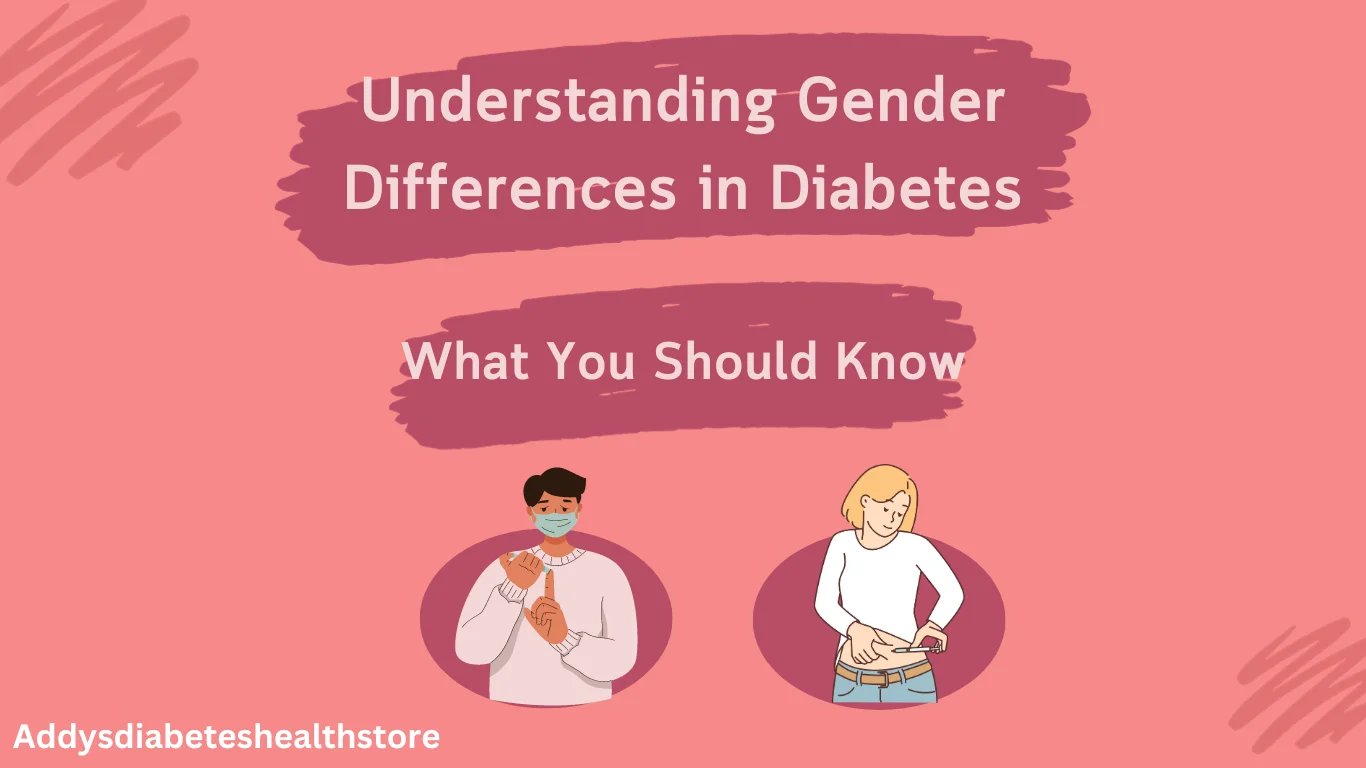Understanding Gender Differences in Diabetes: What You Should Know

Diabetes is a persistent health condition affecting how your body processes food into energy. It comes in two primary forms: type 1 and type 2 diabetes. This article explores the gender-specific aspects of diabetes, shedding light on the variations that exist in its prevalence, diagnosis age, risk factors, complications, and treatment. Let’s delve into the world of diabetes, where gender plays a significant role.
Prevalence: The global prevalence of diabetes is higher in men than in women; however, post-menopause, the prevalence of type 2 diabetes becomes higher in women than in men.
Age at Diagnosis: Diabetes often strikes men at a younger age than women.
Common Risk Factors: Both genders share several common risk factors for diabetes, such as obesity, physical inactivity, and family history. Nonetheless, gender-specific risk factors come into play as well. For instance, women face an elevated risk of developing type 2 diabetes during pregnancy. Hormonal changes during pregnancy can hinder insulin usage in the body. Additionally, after menopause, women encounter an increased susceptibility to type 2 diabetes due to shifts in body composition, particularly increased abdominal fat, which can elevate the risk of insulin resistance.
Complications: While men and women have an equal risk of developing prevalent diabetes complications like heart disease, stroke, and kidney disease, there are notable gender differences in other complications. Women with diabetes are more prone to foot problems, including ulcers and infections, along with an increased likelihood of experiencing depression and anxiety.
Treatment: Treatment for diabetes generally follows a similar path for both men and women. However, gender-specific considerations do arise. For example, women with diabetes may need to adapt their insulin dosage during pregnancy, and they might require additional measures to prevent foot issues.
Conclusion: Gender differences indeed play a role in diabetes, but it’s essential to emphasize that both men and women can develop this condition. Being aware of your risk factors and having open discussions with your healthcare provider regarding your diabetes prevention and management strategy is crucial for all individuals, regardless of their gender. Remember, knowledge is a powerful tool in the fight against diabetes.
FAQ
1. Are men or women more likely to develop diabetes?
The global prevalence of diabetes is higher in men than in women. However, the prevalence of type 2 diabetes is higher in women than in men after menopause.
2. At what age are men and women typically diagnosed with diabetes?
Men are more likely to be diagnosed with diabetes at a younger age than women.
3. What are the common risk factors for diabetes in men and women?
Both men and women share many of the same risk factors for diabetes, such as obesity, physical inactivity, and family history. However, there are some gender-specific risk factors as well.
4. What are the gender-specific risk factors for diabetes?
Women are at an increased risk of developing type 2 diabetes during pregnancy and after menopause.
5. Are there any gender differences in the complications of diabetes?
Men and women are at equal risk of developing some of the most common diabetes complications, such as heart disease, stroke, and kidney disease. However, there are some gender differences in other complications. Women with diabetes are more likely to develop foot problems, such as ulcers and infections. They are also more likely to develop depression and anxiety.
6. Is the treatment for diabetes different for men and women?
The treatment for diabetes is generally the same for men and women. However, there are some gender-specific considerations. For example, women with diabetes may need to adjust their insulin dosage during pregnancy. They may also need to take additional steps to prevent foot problems.
7. What can I do to prevent diabetes?
There are several things you can do to prevent diabetes, including:
Maintaining a healthy weight
Eating a healthy diet
Getting regular exercise
Managing stress
Quitting smoking
